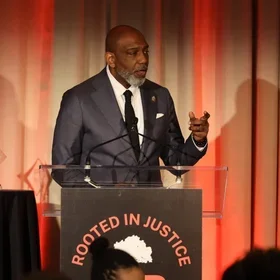How has teaching negotiation added to your understanding of the conflict resolution field?
The more I work with the predominant theories in the field of negotiation, through practicing with them, teaching them and engaging students in discussions, my thinking and knowledge is sharpened. Furthermore, when teaching the same topic each semester, I am afforded the opportunity to deeply understand the nuances, the edges and the fuzzy aspects of the different theories and concepts. Each semester provides new understanding, in part, driven by the student’s areas of inquiry and questions.
How important is theory when learning negotiation skills?
Negotiation, like many psychological phenomena, is a skill set that we all engage with just about every day, particularly in our social interactions. Understanding that there is a discipline, and grounded empirical theory is critical to appreciating the value of teaching the skills of negotiation.
Who are some of the most influential thinkers, besides Professor Emeritus Morton Deutsch, that have shaped your knowledge in the field?
Roger Fisher and his work in international negotiation, and Kenneth Sole and his focus on productive conflict resolution skill development.
What attracted you to teaching in the NECR program?
Seemed like a natural fit. I also wanted the opportunity to work with a broadly international group of students who have this as their primary area of graduate study. I enjoy working with the NECR students, particularly as they enter the program. I have found that their engagement with the topics of study is deep and driven by an earnest hunger to better understand the conflicts surrounding us.
Can you describe how you approach teaching negotiation in your classes?
I recently came across a series of articles about teaching negotiation. The articles were from a series about efforts undertaken by those who teach negotiation and their interest in increasing the experiential aspects of teaching a skill using methods that go beyond role plays and simulations. This inspired me to re-think and re-do several assignments in my class to increase the opportunity for reflective skill practice with real negotiations. I am still examining the benefits and ways to enhance them to build upon the theory work we do in the class.
What advice do you have for new students?
This is a place rich in resources for all different interests in this field. I would encourage students to get connected as soon as possible with ANCORRS. Over time, they can scope out specific networks related to their particular interests: The Morton Deutsch International Center for Cooperation and Conflict Resolution (MD-ICCCR); Advanced Consortium on Cooperation, Conflict, and Complexity (AC4); The Earth Institute; The Committee on Global Thought; School of International and Public Affairs (SIPA), and many others that might be doing interesting things related to one’s particular interests.


